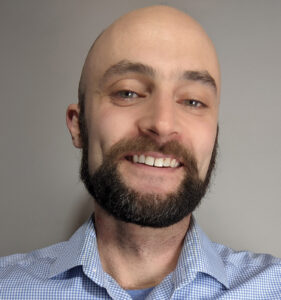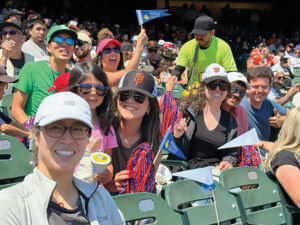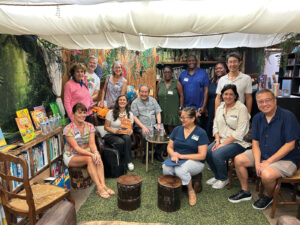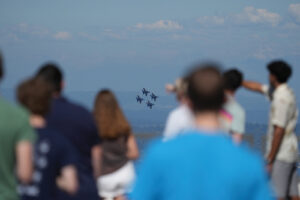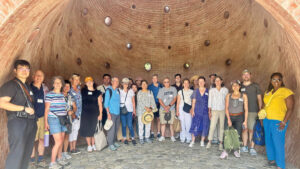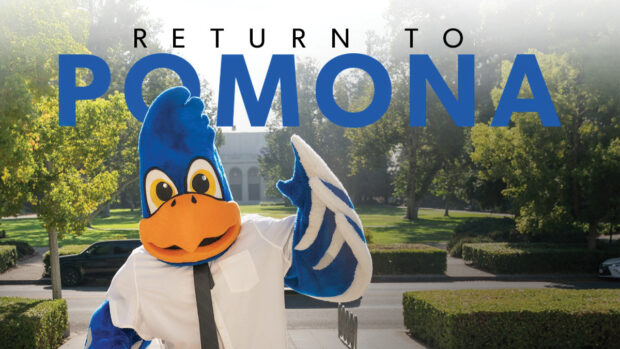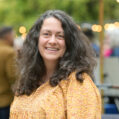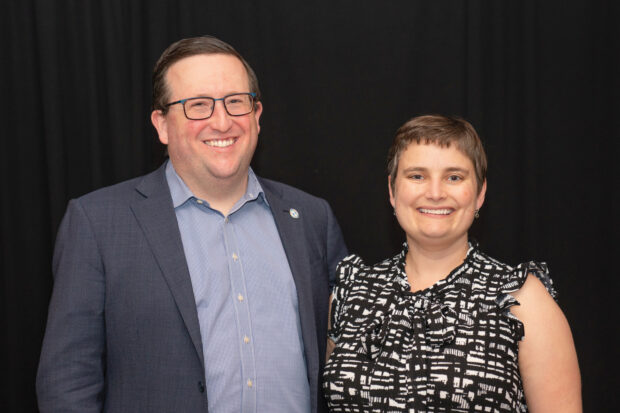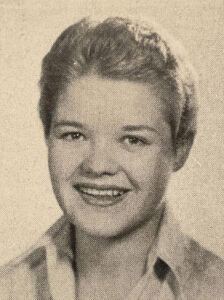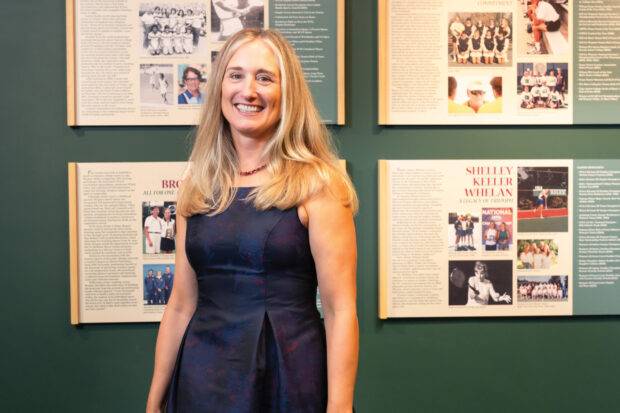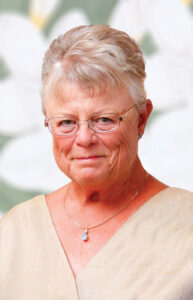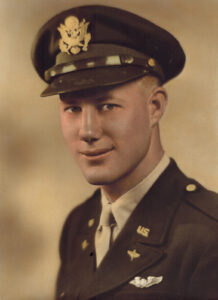2024 Protests
It is with dismay that I read about the disruption of several aspects of campus life (e.g., 2024 Commencement and the fall opening convocation) by pro-Palestinian protesters.
Full disclosure: I have relatives in Israel, who knew people who were killed on 10/7/23, the worst massacre of the Jewish people since the Holocaust. Lest you view me as a cheerleader for Netanyahu, I believe that his refusal to entertain the idea of a two-state solution has contributed to Israel’s diplomatic isolation and security crises. While I initially supported Israel’s military response, I have come to believe that it reached a point of diminishing returns long ago. Like any decent human, I am saddened by the loss of innocent Palestinian lives, and wish that Israel put greater effort into a two-state solution.
That said, these nuances are absolutely lost on the West’s “pro-Palestinian” movement—a term I put in quotes because it seems to put a higher priority on destroying Israel than on improving the lot of the Palestinian people.
Anyone who has studied the history of that region would realize just how complicated it is, with both Jews and Palestinians having legitimate claims to the land and legitimate grievances toward each other. My complaint against student protesters is threefold. First, a college is supposed to be a place for critical thinking. Students who shout eliminationist anti-Israel slogans obviously gave up on that a long time ago.
Second, the protesters’ methods often push the boundaries of legality. At Pomona and elsewhere, they have shown callous disrespect for other people’s property and personal space.
Third, while I do not believe that “pro-Palestinian” protesters are consciously antisemitic, their actions have the effect of making many Jewish students feel targeted and intimidated.
All of this breaks my heart.
—Tony Gansen, ’84
Foster City, California
Another ’60s Activist Offers View on Campus Climate
I look back with pride at my political activity when I was at Pomona. I did not have the privilege of knowing Harry Stein ’70 (“A ’60s Activist’s Take on Politicized Campuses,” Summer 2024), but may have participated in some of the same demonstrations he did. Even though I played football, considered the sign of a caveman, I marched with Jane Fonda. The Vietnam War was actually a simpler issue than the Israel-Palestine conflict. The rest of the Middle East, the United States, and the rest of the world bear responsibility for the failure to complete the 1947 United Nations Resolution 181 that created the state of Israel and called for a separate state of Palestine. As for the criticism of the news coverage regarding Pomona by Pomona College Magazine, I have not found it biased. While I live in Arlington, Texas, I still have family in Upland and Riverside with whom I share discussions about Pomona. I was surprised that Harry Stein did not mention the Claremont Institute and its far-right views, yet stated that there is “near-uniformity of thought in Claremont on issues of race, gender and now the Middle East.” I applaud President Starr’s efforts to promote significant discussion regarding difficult and contentious issues.
—Gerald Casenave ’72
Arlington, Texas
Pomona Students, Yesterday and Today
Regarding the letter from Harry Stein ’70, when I returned to Pomona after my Melvin Laird Fellowship in Southeast Asian Studies, I found the campus to be as vibrant and intellectually alive as it was when I dropped out in February 1968.
I have been on campus a number of times in the last 10 years. I have talked to undergrads. The only way one could conclude there was “near-uniformity of thought” among Pomona undergrads is if he had no contact whatsoever with the undergraduate population.
—Bart Scott ’75
Santa Rosa, California
President Starr on 10/7 Campus Events
The takeover of Carnegie Hall by protesters and the events that ensued “should be unfathomable” in a close-knit, ethical and caring learning community such as Pomona’s. That was the message that President G. Gabrielle Starr shared with the campus in the aftermath of the events.
“Our academic mission was directly targeted. Faculty, students, staff and high school student visitors were subjected to intimidation and fear. This is unacceptable,” she wrote. She expressed gratitude to the members of the College community who, she said, “in the midst of crisis showed who we are at our best and provided help.”
“The destruction in Carnegie Hall was extensive, and investigation has revealed that the vast majority of those who occupied Carnegie are not Pomona students,” Starr said. “Disciplinary letters are going out to students from Pomona and other Claremont Colleges identified as involved in the takeover. Student groups affiliated with this incident are also under investigation. Individuals who are not students will be banned from our campus, she noted.”
Pomona is committed to the integrity of its disciplinary processes, and President Starr affirmed that the College will not comment on individual cases. Within the scope of the student code, and commensurate with individual circumstances, sanctions may include campus bans, suspension and expulsion—a step not taken lightly, she said. Students have due process, with opportunities for appeal.
“As we head into the final months of the semester, let us not lose sight of what unites us and makes us strong,” President Starr concluded. “We are given great gifts that we must bear in trust for this generation and generations to come. I am proud to be part of this community. I look forward to engaging alongside you, and setting our feet together on a path that, even at our most profound moments of disagreement, leads to higher ground.”
Memories of KSPC in the Late 1950s
When I transferred from Columbia University to Pomona, attending for 2½ years before graduating with distinction in 1958, trad jazz (short for traditional) continued to figuratively save my life. So, I was delighted to host an evening program featuring the likes of Louis Armstrong and Bix Beiderbecke on KSPC (“KSPC Radio Rocks On,” Summer 2024). Terry Drinkwater ’58 ran a tight ship at the station and went on to greater things in broadcasting as a correspondent and anchor at CBS News before tragically passing prematurely in 1989.
But it was my weird fellow classical jazz enthusiast, Jim Bogen ’57, who played a mean clarinet, who encouraged me to host such a program that probably attracted no more than a dozen campus listeners—I never knew as no one ever commented besides Jim and a fellow Phi Delta, Bill Baer ’58.
I was only attracted to buddies then who were a little crazy and off the wall during the deadly conformism of the ’50s, and Jim was one of the few. I’d occasionally visit him four flights up the stairs in Smiley Hall and stare respectfully at the pennies he deliberately cast about his room floor, like a true philosophy major, to show his disdain for Californian materialism. If he’s still alive and reads this, I want him to know I still have the LP he and a pickup student band recorded—some amateurish riffs on trad jazz that must now be very collectible, and that his clarinet solos still stand out.
I also wonder if any archives exist witnessing most of KSPC’s 68 years at its various locations. Nothing like old-time radio going back to the 1930s, but that’s another story.
—Paul Christopher ’58
Pebble Beach, California
Correction
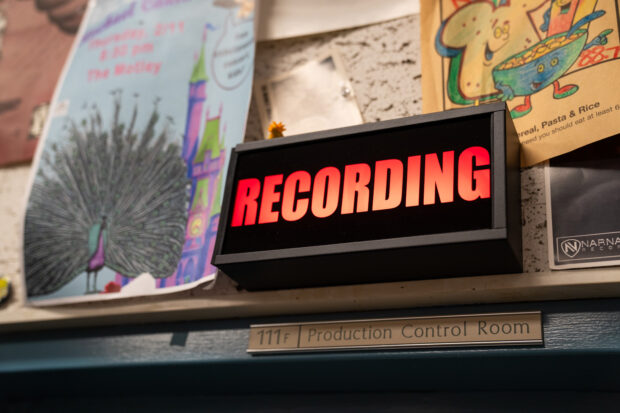 Joanne Tobiessen ’64 worked in career development at Union College in Schenectady, NY, and developed its peer facilitators program during 18 years of service, and also served on Union College’s Women’s Commission. Her obituary in the Summer 2024 issue incorrectly identified the college as Pacific Union. Pomona College Magazine regrets the error.
Joanne Tobiessen ’64 worked in career development at Union College in Schenectady, NY, and developed its peer facilitators program during 18 years of service, and also served on Union College’s Women’s Commission. Her obituary in the Summer 2024 issue incorrectly identified the college as Pacific Union. Pomona College Magazine regrets the error.
Write to Us at PCM
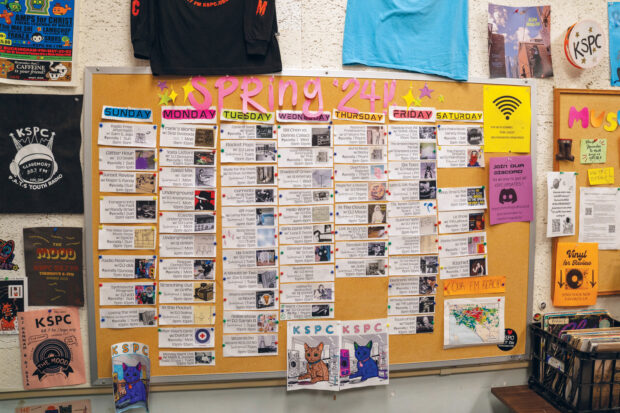
We welcome brief letters about College issues from alumni, parents, students, faculty, staff, donors and other community members. Email us or mail a letter to Pomona College Magazine, 550 N. College Ave., Claremont, CA 91711. Letters should include the writer’s name, city and state of residence, contact information, and class year (for alumni). Letters should be no more than 400 words, are selected based on relevance and available space, and are subject to being edited for brevity and clarity.
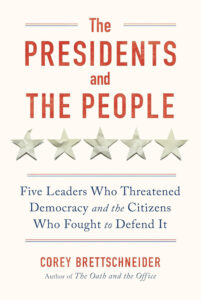 In The Presidents and the People, Corey Brettschneider ’95 explores how five American presidents in different eras abused their power and how citizens fought back to restore democracy.
In The Presidents and the People, Corey Brettschneider ’95 explores how five American presidents in different eras abused their power and how citizens fought back to restore democracy.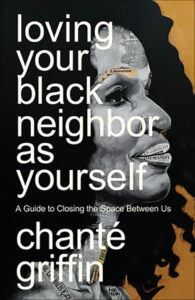 Chanté Griffin ’00 helps readers develop a vision of anti-racism and move toward racial healing in Loving Your Black Neighbor as Yourself: A Guide to Closing the Space Between Us.
Chanté Griffin ’00 helps readers develop a vision of anti-racism and move toward racial healing in Loving Your Black Neighbor as Yourself: A Guide to Closing the Space Between Us.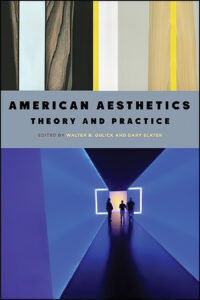 As an editor of American Aesthetics: Theory and Practice, Walter B. Gulick ’60 proposes a distinctly American approach to aesthetic judgment and practice through this collection of essays.
As an editor of American Aesthetics: Theory and Practice, Walter B. Gulick ’60 proposes a distinctly American approach to aesthetic judgment and practice through this collection of essays.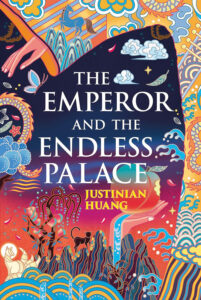 In his debut novel The Emperor and the Endless Palace, Justinian Huang ’09 crafts a genre-bending queer Asian love story that unfolds across multiple timelines.
In his debut novel The Emperor and the Endless Palace, Justinian Huang ’09 crafts a genre-bending queer Asian love story that unfolds across multiple timelines.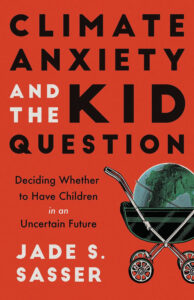 Jade Sasser ’97 explores climate-driven reproductive anxiety, placing race and social justice at the center, in Climate Anxiety and the Kid Question: Deciding Whether to Have Children in an Uncertain Future
Jade Sasser ’97 explores climate-driven reproductive anxiety, placing race and social justice at the center, in Climate Anxiety and the Kid Question: Deciding Whether to Have Children in an Uncertain Future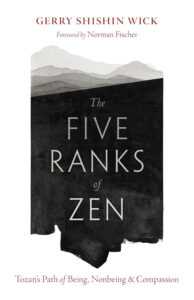 The Five Ranks of Zen: Tozan’s Path of Being, Nonbeing and Compassion is a comprehensive guide to the teachings of Zen Buddhism by American Zen teacher Gerry Shishin Wick ’62.
The Five Ranks of Zen: Tozan’s Path of Being, Nonbeing and Compassion is a comprehensive guide to the teachings of Zen Buddhism by American Zen teacher Gerry Shishin Wick ’62.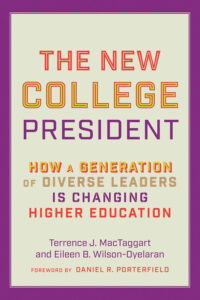 As president emerita of Kalamazoo College and trustee emerita of Pomona College, Eileen B. Wilson-Oyelaran ’69 presents a fresh perspective on higher education leadership in The New College President: How a Generation of Diverse Leaders Is Changing Higher Education.
As president emerita of Kalamazoo College and trustee emerita of Pomona College, Eileen B. Wilson-Oyelaran ’69 presents a fresh perspective on higher education leadership in The New College President: How a Generation of Diverse Leaders Is Changing Higher Education. 
